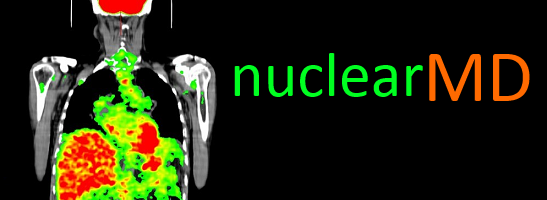Recurrent Colon Cancer
67 year old male with stage IIIA colon cancer, status post left hemicolectomy, low anterior resection and 6 months of adjuvant chemotherapy presented with rising CEA, an increase from 2.38 to 3.27 ng/ml. PET-CT showed a 8 mm non- FDG avid right lower lobe lung nodule without any definite evidence of recurrent or metastatic disease. The patient was otherwise asymptomatic and a non-smoker.

In the next 8-9 months the nodule slowly increased in size on follow up CT scans and the CEA increased to 7.89 ng/ml. Repeat PET-CT showed focal hypermetabolism in the right lower lung nodule with a maximum SUV of 4.0, now measuring 1.6 x 1.0 cm. No other evidence of FDG avid neoplastic disease was seen. FNA of the right lower lobe lung nodule showed poorly differentiated adenocarcinoma from colon primary. Focal uptake (inflammatory) is also seen in the cervical spine facet joint arthritis (on the left).


PET-CT has been shown to be better than CT for the evaluation of recurrent or distant metastatic disease, especially after recent surgical procedures that distort local anatomy (1). Although colorectal cancer metastasizes to the liver more commonly, isolated pulmonary metastasis can also occur. Aggressive resection of pulmonary metastasis can prolong survival in these patients (2).
1. Flamen P; Hoekstra OSl Homans F. Unexplained rising carcinoembryonic antigen (ECEA) in the postoperative surveillance of colorectal cancer; the utility of positron emission tomography (PET). Eur J Cancer 2001 May; 37(7):862-9.
2. Lee WS, Yun SH, Chun HK. Pulmonary resection for metastases from colorectal cancer: prognostic factors and survival. Int J Colorectal Dis. 2007 Jun;22(6):699-704.
This case was compiled by Dr. Saiyyeda Rahman, BCM
